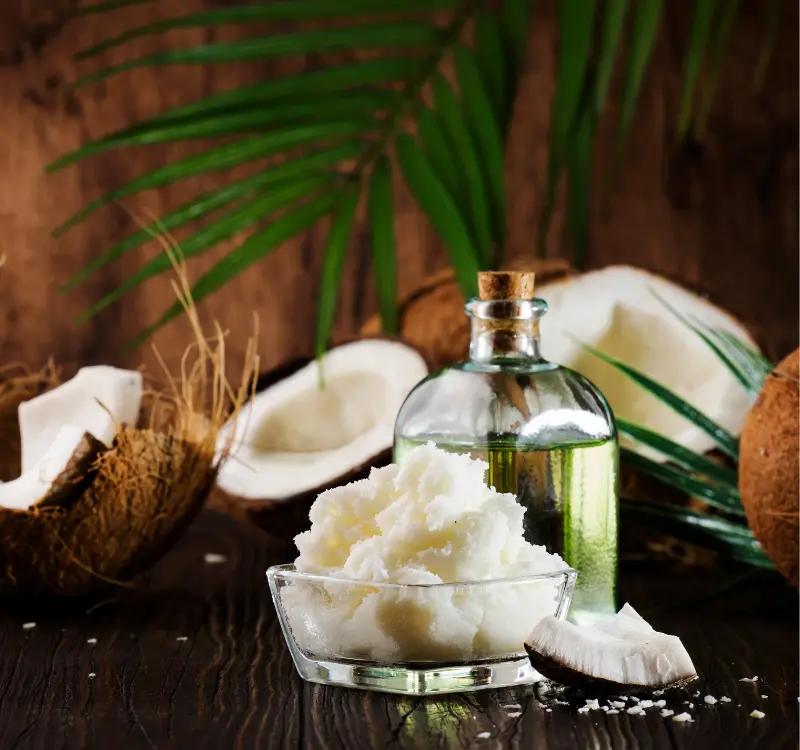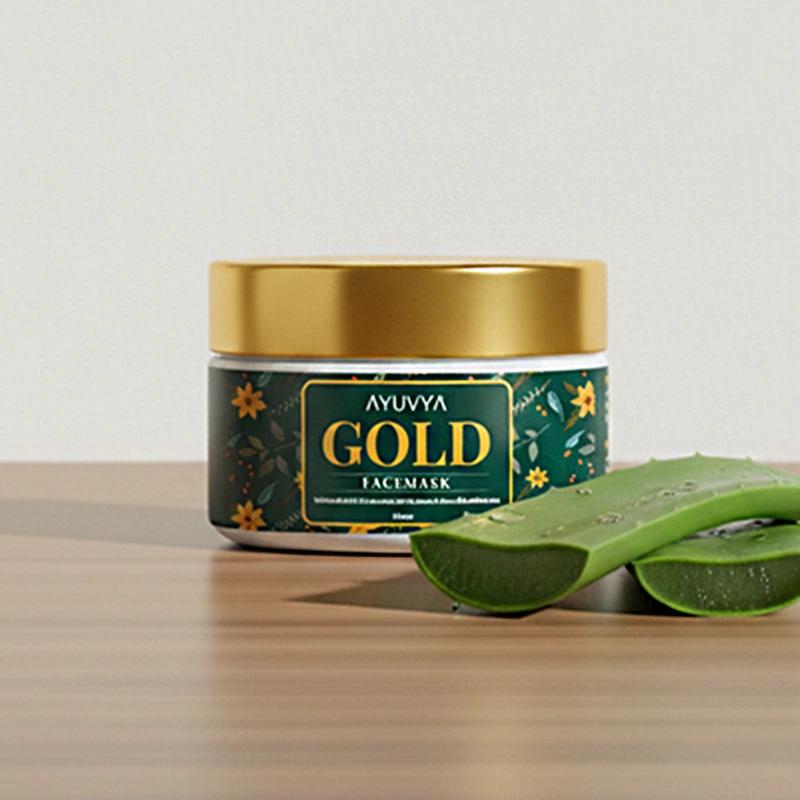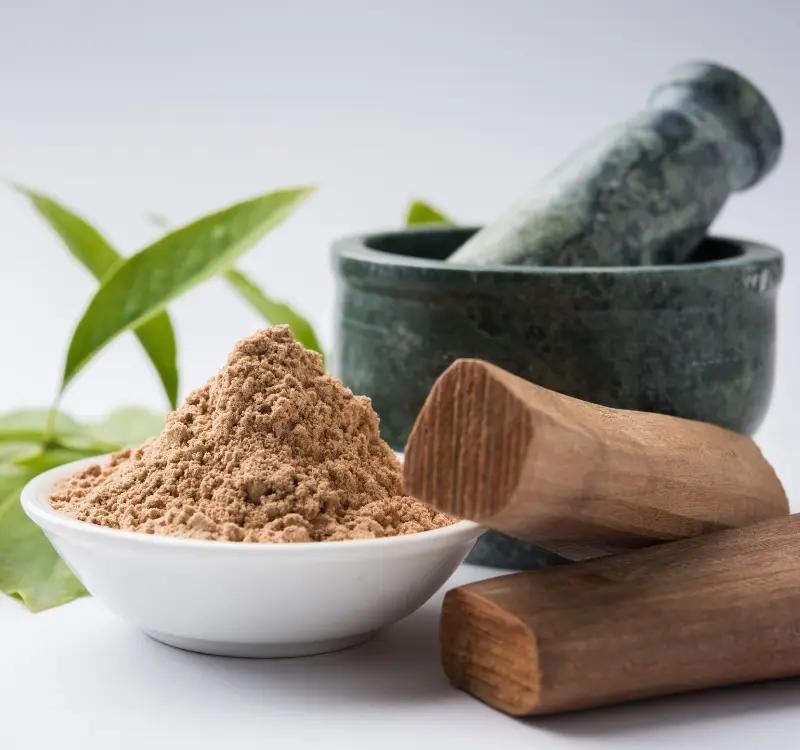Coconut Oil for Skin Whitening: How It Can Transform Your Skin?
Aug 28, 2024

Coconut oil is a reliable and multi-functional product that has been widely used all around the world for many years due to its natural creamy characteristics and lovely smell. It is used in many cultures for medicine and beauty, it works well for skincare, hair treatment, and cooking. Due to this, its use has been very popular in natural treatments and operations as a routine practice.
Table of Contents:
- What is Coconut Oil?
- Coconut Oil for Skin Whitening
- Benefits of Coconut Oil For Skin Whitening
- How to Use Coconut Oil for Skin Whitening
- Side Effects of Coconut Oil
- Conclusion
- FAQs
What is Coconut Oil?
Coconut oil is made by extracting and pressing the meat from mature coconuts. It is solid at room temperature but melts into a liquid when warmed. The oil is rich in saturated fats, which give it its thick texture and stability. It has a mild coconut scent and is commonly used in cooking, skincare, and hair care.
Coconut Oil for Skin Whitening
Coconut oil has skin whitening benefits because of its moisturizing and anti-oxidant qualities. It holds vitamin E and other antioxidants that improve skin tone and lighten the regions with dark spots. Coconut oil’s benefits in nourishing the skin also extend to making it smoother and shinier.
Benefits of Coconut Oil For Skin Whitening
1. Moisturizes Skin: Coconut oil also helps our skin to get deeply nourished because of the fatty acids present in it. It creates a protective layer that locks in moisture thus making the skin look smooth. Especially recommended for use on the skin that becomes dry or has a rough texture, it restores the skin’s natural moisture balance.
2. Reduces Dark Spots: Coconut oil contains antioxidants, vitamin E that can be used to remove dark spots and uneven skin tone. Using coconut oil every morning and evening assists in the decrease of blemishes and discoloration thus providing a more even skin tone.
3. Improves Skin Texture: The skin becomes smoother and softer due to the application of coconut oil since it is rich in moisturizing features. It assists in minimizing the problem of skin dryness and roughness, thus improving skin tone and elasticity.
4.Antibacterial Properties: Essential fatty acids found in coconut oil include Lauric acid and these have some natural antibiotic properties. This aids in controlling the development of pathogenic microorganisms on the skin and in the body thus improving immunity and fighting off infections.
5.Protects Against Damage: Coconut oil is also beneficial to the skin due to its antioxidants which protect the skin from harm like pollution and UV radiation. This protection prevents skin from aging early and keeps the skin looking radiant and healthy.
How to use coconut oil for skin whitening?
For skin whitening, it is recommended that you apply a thin layer of coconut oil onto the skin and then rub the area. For best results, this should be done every day, preferably before going to sleep at night. However, it is crucial to note that though coconut oil makes the skin seem to be brighter, it is not a one-stop solution. It is also important to note that, unlike synthetic treatments, natural remedies may take some time before observing significant changes. However, always be careful not to cause any skin reactions and seek the advice of a dermatologist whenever you want to try out a specific product for your kind of skin.
Side Effects of Coconut Oil
1.Allergic Reactions: Some people may experience itching or redness when using coconut oil. A patch test is recommended to ensure you don’t have an allergy before applying it widely.
2.Acne: Coconut oil is comedogenic, which means it can clog pores and potentially worsen acne. Those with oily or acne-prone skin should use it cautiously or consider alternative products that won’t clog pores.
3.Digestive Issues: Consuming large amounts of coconut oil can lead to digestive problems, such as diarrhea or stomach cramps. Consume a small amount in the beginning and see how your body reacts to it.
4. Caloric Content: Coconut oil is high in calories and fats. Excessive consumption can contribute to weight gain. Moderation is key to incorporating it into a balanced diet without negatively impacting your calorie intake.
Conclusion
Coconut oil has beneficial effects on skin, hair, and digestive health, which makes it an effective product to include in your diet and cosmetic care. In fact, it can be one of the most effective treatments for some conditions; however, it’s crucial to know how to use it right plus the possible side effects. Hence, it is possible to consider coconut oil as one of the useful natural products that can improve the state of human health if it is utilized appropriately and unleveled.
Frequently Asked Questions
Coconut oil can help lighten tans gradually due to its moisturizing properties and antioxidants. However, it may not completely remove a tan. Regular application, combined with other skin-lightening agents like lemon juice or sunscreen, can aid in fading tan over time.
For skin lightening, you can mix coconut oil with ingredients like lemon juice, turmeric, or honey. Lemon juice contains vitamin C, which can brighten skin, while turmeric has anti-inflammatory properties and honey is a natural moisturizer. Combine these with coconut oil to enhance its skin-lightening effects.
Coconut oil may enhance skin tone and reduce dark spots but is not a strong whitening agent. It improves overall skin appearance and radiance through its moisturizing and antioxidant effects.
Yes, applying coconut oil before bed can be effective for skin whitening. The oil's nourishing properties work overnight to improve skin tone and texture, potentially helping with a brighter complexion.
Coconut oil can help lighten skin over time due to its antioxidant properties and ability to improve skin texture. Regular use may reduce the appearance of dark spots and uneven skin tone.















